 Introduction
Introduction
Overseas travel grants provide funding for international travel and subsistence. You can use them to visit recognised non-UK centres to study new techniques and to travel from the UK to start or develop international collaborations.
There is no limit on amount of funding and no closing dates.
Salary and indirect costs
In addition to travel and subsistence, the principal investigator can request funds to cover their salary and indirect costs. But funding is not available through this scheme to specifically support sabbatical absences or conference attendance. Consumables and equipment (e.g. laptops) are not covered under this scheme.
Number of people
The OTG should normally be for the support of the named principal investigator only. Support for other staff such as PhD students and researcher co-investigators can be requested although their inclusion should be fully justified.
Timing and the length of the grant
There is no upper limit on the length of grant.
If the funding decision for an OTG comes after the requested start date of the grant, the funding cannot be backdated. EPSRC do not allow any expenditure incurred before the announcement date to be charged to the grant. So please ensure you leave enough time for processing, which is currently at least 12 weeks before the proposed visit.
Where can you go
As long as the visit is to a recognised research centre there are no restrictions on which countries can be visited. If you need a visa to enter a country, you can include the cost of obtaining a visa in your proposal. But OTGs are exclusively for travel abroad, outside the UK. However you can apply for funding for researchers from abroad to visit the UK as a visiting researcher on a research grant proposal.
Linking OTG proposals to an existing ESPRC research grant
You do not need to link an OTG proposal to an existing EPSRC research grant. But there is an expectation that any new techniques learned or collaborations formed may lead to future research proposals.
OTGs and first grants
An applicant who has been a Principle Investigator on an OTG would be eligible to apply for a first grant. Applying for an OTG does not affect eligibility for the first grant scheme.
Support for researchers applying to Framework Programme 7
You can use overseas travel grants to help UK researchers to start or foster international collaborations to develop high-quality bids to Framework Programme 7 (FP7). Your application should address how the grant will help develop collaborations with European researchers for a FP7 bid.
Who can apply
Overseas travel grants (OTGs) are open to any full-time investigator employed by a recognised UK research organisation (excluding PhD students and PDRAs). Our funding guide gives full details of eligibility of organisations and individuals.
How to apply
You can apply for travel and subsistence, salary costs of the principal investigator for time spent on the grant, and indirect costs. There are no closing dates and you can apply at any time. You can apply for funding to visit one centre or several centres.
You should submit your proposal through the research councils’ joint electronic submission (Je-S) system. Select document type ‘standard proposal’ and scheme ‘overseas travel grant’. As these are usually smaller grants than standard responsive mode applications, it may not be appropriate for your description of the proposed research to fill the allocated 6 sides A4. Please complete as much as required to fully justify your intended visit.
Assessment
Proposals are assessed through our peer review process. If a proposal gets supportive referees’ comments, funding may be approved without consideration at a prioritisation panel. We try to provide a fast turnaround for these proposals but advise you to apply at least 12 weeks before the proposed visit.
More information
If you would like to discuss a possible proposal, or if you have any questions regarding applications for funding to develop collaborations for FP7 proposals than please search our staff contacts to find the person responsible for your research area. We cannot supply examples of successful OTG applications as these proposals have been submitted to us in confidence.
The RKE Operations team can help you with your application.

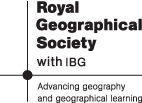
 The Neville Shulman Challenge Award, first given in 2001, is an annual award of £10,000, established for the Society by Neville Shulman CBE and his associates.
The Neville Shulman Challenge Award, first given in 2001, is an annual award of £10,000, established for the Society by Neville Shulman CBE and his associates.
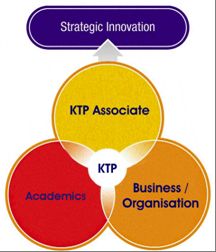



 Grant Linked studentships
Grant Linked studentships 
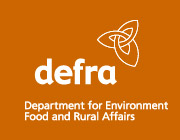

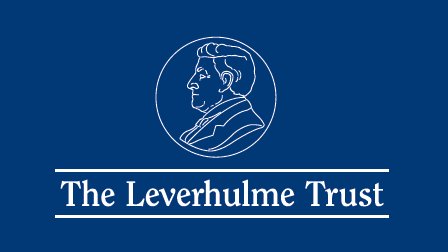
 Action on Hearing Loss,
Action on Hearing Loss,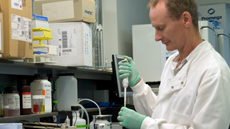












 Second NIHR MIHERC meeting in Bournemouth this week
Second NIHR MIHERC meeting in Bournemouth this week Dr. Ashraf cited on ‘Modest Fashion’ in The Guardian
Dr. Ashraf cited on ‘Modest Fashion’ in The Guardian NIHR-funded research launches website
NIHR-funded research launches website MSCA Postdoctoral Fellowships 2025 Call
MSCA Postdoctoral Fellowships 2025 Call ERC Advanced Grant 2025 Webinar
ERC Advanced Grant 2025 Webinar Horizon Europe Work Programme 2025 Published
Horizon Europe Work Programme 2025 Published Horizon Europe 2025 Work Programme pre-Published
Horizon Europe 2025 Work Programme pre-Published Update on UKRO services
Update on UKRO services European research project exploring use of ‘virtual twins’ to better manage metabolic associated fatty liver disease
European research project exploring use of ‘virtual twins’ to better manage metabolic associated fatty liver disease